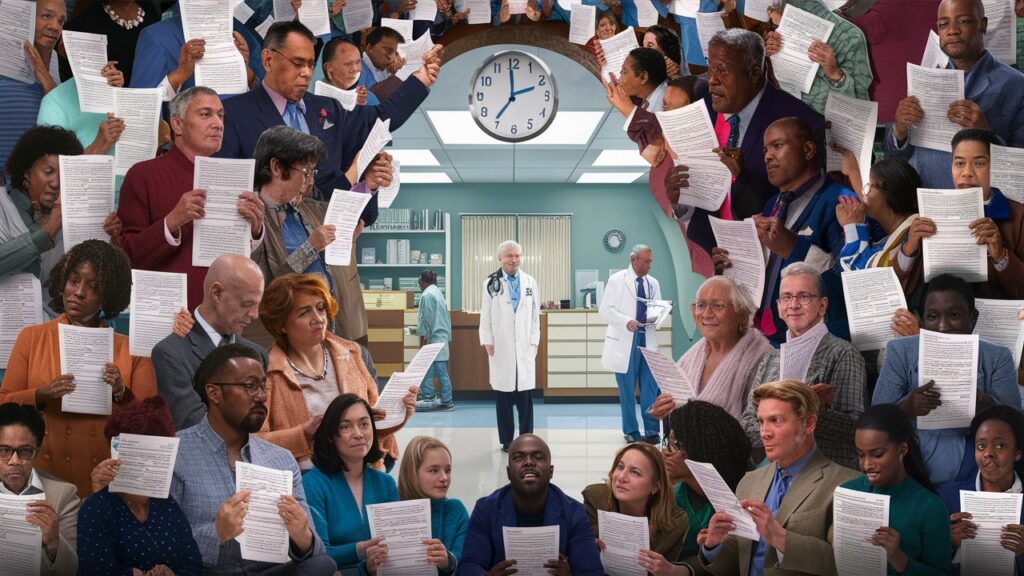In this guide, we will delve into the intricate workings of health insurance in the United States, shedding light on its significance, nuances, and operational mechanisms.

Defining Health Insurance
Health insurance is a contractual agreement between an individual and an insurance company, wherein the insurer agrees to provide financial coverage for medical expenses incurred by the insured, in exchange for premium payments.
Importance of Health Insurance
Health insurance plays a pivotal role in safeguarding individuals and families from exorbitant medical costs, ensuring access to timely healthcare services, and promoting overall well-being.
Types and Categories
Health insurance plans in the USA are broadly categorized into several types, each catering to specific needs and preferences.
Private Health Insurance
Privately acquired insurance plans, often provided through employers or purchased independently, offer a range of coverage options tailored to individual requirements.
Government-Sponsored Programs
Government initiatives such as Medicare for seniors, Medicaid for low-income individuals, and CHIP for children from low-income families, extend coverage to vulnerable populations.
Symptoms and Signs
Understanding the symptoms and signs of a health insurance plan’s effectiveness is crucial for making informed decisions.
Comprehensive Coverage
A good health insurance plan should encompass a wide array of medical services, including hospitalization, prescription drugs, preventive care, and specialist consultations.
Network Adequacy
Access to a network of healthcare providers, hospitals, and pharmacies ensures timely and convenient medical assistance.
Causes and Risk Factors
Several factors influence the availability, cost, and efficacy of health insurance in the USA.
Rising Healthcare Costs
Escalating medical expenses contribute to the increasing premiums and out-of-pocket expenditures associated with health insurance plans.
Pre-existing Conditions
Individuals with pre-existing medical conditions may encounter challenges in obtaining affordable coverage, as insurers often impose higher premiums or exclude certain conditions from coverage.
Diagnosis and Tests
Diagnostic procedures and tests play a crucial role in determining healthcare needs and treatment plans, with insurance coverage varying based on medical necessity and policy provisions.
Routine Check-ups
Regular health screenings and preventive tests are typically covered under most health insurance plans, encouraging proactive healthcare management.
Prior Authorization
Certain diagnostic tests and specialized procedures may require prior authorization from insurance providers to ensure medical necessity and cost-effectiveness.
Treatment Options
Health insurance facilitates access to a spectrum of medical treatments and interventions, empowering individuals to address health concerns effectively.
Medical Interventions
Coverage for medical treatments such as surgeries, therapies, medications, and medical devices alleviates financial burdens associated with illness or injury.
Alternative Therapies
Some health insurance plans offer coverage for complementary and alternative therapies, acknowledging diverse healthcare preferences.

Preventive Measures
Promoting preventive healthcare measures is integral to reducing the incidence of illnesses and managing healthcare costs effectively.
Wellness Programs
Many health insurance plans offer wellness incentives and programs to encourage healthy lifestyle choices and disease prevention.
Vaccination Coverage
Immunization services, including vaccinations for preventable diseases, are often covered under health insurance plans to promote public health initiatives.
Personal Stories or Case Studies
Real-life anecdotes and experiences shed light on the practical implications of health insurance decisions and healthcare experiences.
Sarah’s Story: Navigating Chronic Illness
Sarah’s journey navigating a chronic illness underscores the importance of comprehensive health insurance coverage and access to specialized care.
John’s Experience: Unforeseen Emergencies
John’s unexpected medical emergency highlights the value of having robust health insurance coverage to mitigate financial risks associated with unforeseen health crises.
Expert Insights
Medical professionals offer valuable perspectives on navigating the complexities of health insurance and optimizing healthcare outcomes.
Dr. Smith’s Advice:
Dr. Smith emphasizes the importance of prioritizing preventive care and regular health screenings to detect and address health issues early on.
Nurse Rodriguez’s Perspective:
Nurse Rodriguez provides practical tips on maximizing insurance benefits, navigating healthcare networks, and advocating for comprehensive coverage.
Conclusion
In conclusion, health insurance serves as a cornerstone of the American healthcare system, providing financial security, access to medical care, and peace of mind to individuals and families across the nation.




